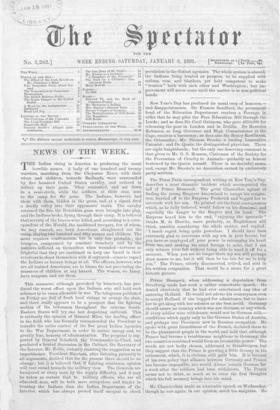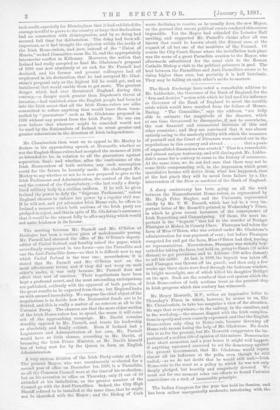Mr. Chamberlain made an admirable speech on Wednesday, though he
was again, in our opinion, much too sanguine. He
took credit especially for Birmingham that it had exhibited the courage needful to prove to the country at large that Radicalism had no connection with disintegration, and by so doing had secured full time for deliberation. The delay had been all- important, as it had brought the explosion within the ranks of the Irish Home-rulers, and now, instead of the "Union of Hearts," we had Committee-room No. 15, and the appropriately internecine conflict in Kilkenny. Moreover, the notion that Ireland had really accepted as final Mr. Gladstone's proposal of 1886 was now absolutely at an end, for Mr. Parnell had declared, and his former and present colleagues had all acquiesced in his declaration, that he had accepted Mr. Glad- stone's proposal only as the .highest bid he could get, and an instalment that would enable them to get more. The greatest danger which had ever threatened England during this century,—a danger much greater than Napoleon's threat of invasion,—had vanished, since the English people had been let into the Irish secret that all the Irish Home-rulers are alike committed to refuse anything that would leave them tram- melled by " guarantees " such as Mr. Gladstone proposed in 1886 without any protest from the Irish Party. No one can now believe that whatever might be conceded would not be used by the Nationalists of Ireland to wrest greater and greater concessions in the direction of Irish independence.















































 Previous page
Previous page